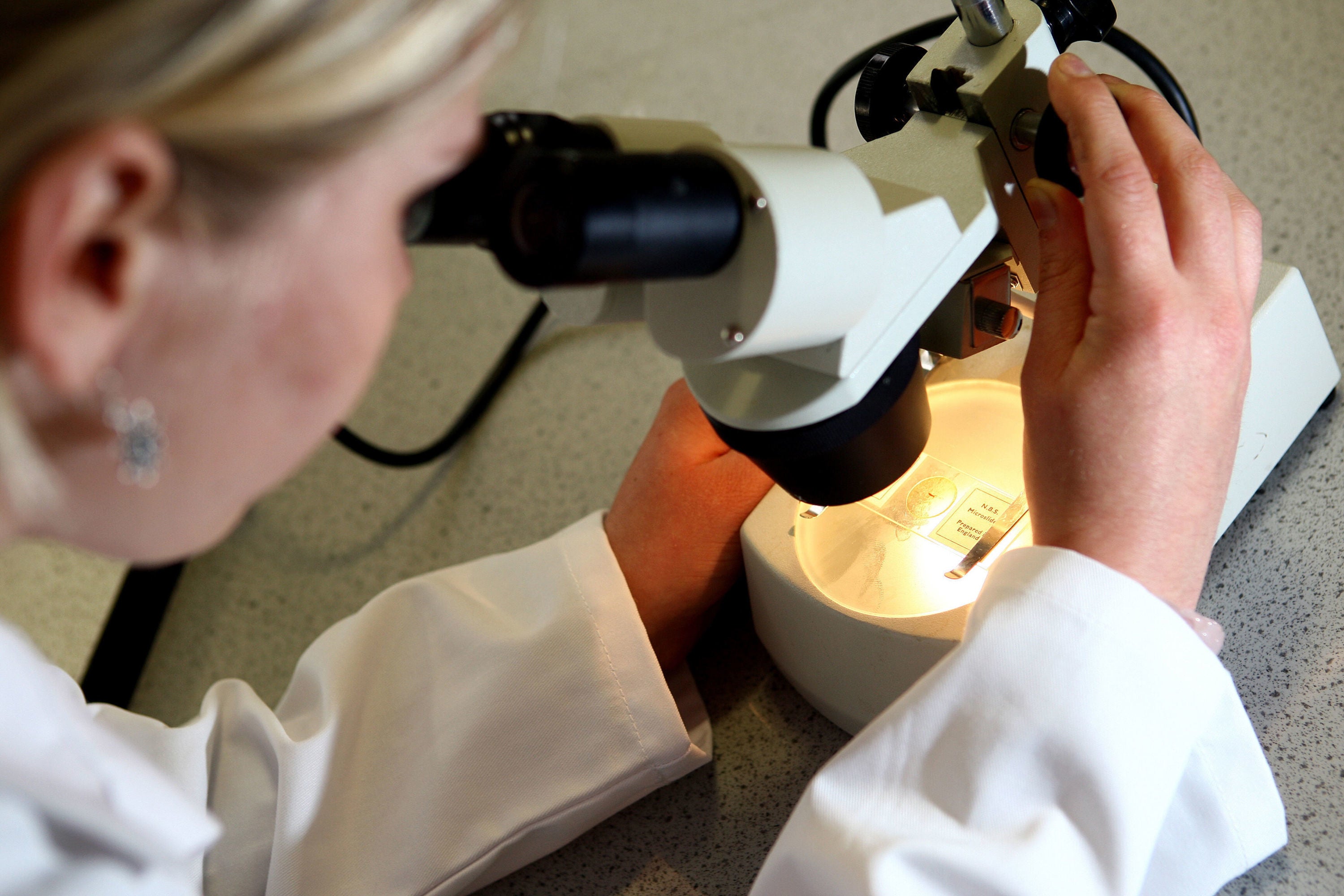Gene therapy dramatically cuts risk of bleeding in haemophilia B patients
Haemophilia is a rare condition that affects the blood’s ability to clot.

Your support helps us to tell the story
From reproductive rights to climate change to Big Tech, The Independent is on the ground when the story is developing. Whether it's investigating the financials of Elon Musk's pro-Trump PAC or producing our latest documentary, 'The A Word', which shines a light on the American women fighting for reproductive rights, we know how important it is to parse out the facts from the messaging.
At such a critical moment in US history, we need reporters on the ground. Your donation allows us to keep sending journalists to speak to both sides of the story.
The Independent is trusted by Americans across the entire political spectrum. And unlike many other quality news outlets, we choose not to lock Americans out of our reporting and analysis with paywalls. We believe quality journalism should be available to everyone, paid for by those who can afford it.
Your support makes all the difference.A new gene therapy has dramatically cut the risk of bleeding in people with the rare condition haemophilia B, experts have said.
Researchers found that a single injection of the gene therapy, called FLT180a, removed the need for people to inject themselves weekly with clotting factors.
The study was led by experts from University College London (UCL), the Royal Free Hospital in London, and biotechnology company Freeline Therapeutics.
Gene therapy is still a young field that pushes the boundaries of science for people with severe genetic diseases
Haemophilia is a rare condition that affects the blood’s ability to clot. It is usually inherited and mostly affects men.
Normally, when a person cuts themselves, clotting factors mix with blood cells called platelets to make the bleeding stop.
But people with haemophilia are lacking clotting factors and are at risk of heavy bleeding.
Most people (around 85%) have haemophilia A, caused by a lack of the blood clotting factor VIII, while haemophilia B is caused by a deficiency of factor IX.
People with haemophilia B need to inject themselves regularly – usually weekly – to make up for the deficiency in clotting factor IX, but can continue to see debilitating joint damage.
Removing the need for haemophilia patients to regularly inject themselves with the missing protein is an important step in improving their quality of life
In the new 26-week trial, published in the New England Journal of Medicine, experts found that a single treatment with FLT180a led to sustained production of the protein from the liver in nine out of 10 patients with severe or moderately severe haemophilia.
This removed the need for their regular injections by correcting their genetic fault and has long-lasting effects.
Lead author Professor Pratima Chowdary, from UCL, said: “Removing the need for haemophilia patients to regularly inject themselves with the missing protein is an important step in improving their quality of life.
“The long-term follow up study will monitor the patients for durability of expression and surveillance for late effects.”
Patients on the trial had to take immune suppressing drugs over several weeks to several months, to prevent their immune systems from rejecting the therapy.
While the treatment was generally well tolerated, all patients experienced some form of side-effects, with an abnormal blood clot in one who received the highest FLT180a dose and had the highest levels of the protein.
Freeline co-founder Professor Amit Nathwani, from UCL, who co-authored the study, said: “Gene therapy is still a young field that pushes the boundaries of science for people with severe genetic diseases.”
He said the new trial adds to “the growing body of evidence that gene therapy has the potential to free patients from the challenges of having to adhere to lifelong therapy or could provide treatment where none exists today.”